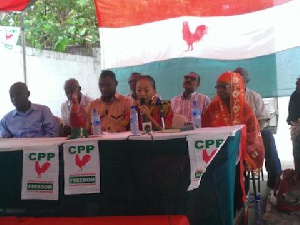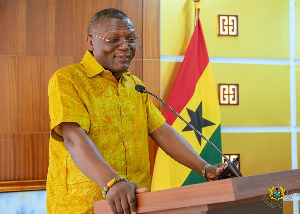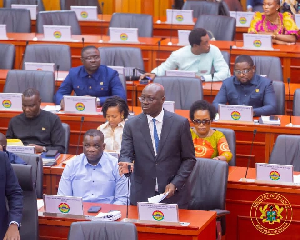The Convention People’s Party (CPP) on Wednesday rejected the Economic Partnership Agreement (EPA) with the European Union and called on the Economic Community of West Africa States (ECOWAS) not to sign it.
The CPP believes that the major challenge facing Ghana and Africa is the struggle to achieve economic independence through industrialization and agricultural modernization.
Ms. Samia Yaba Nkrumah, the CPP Chairperson said this at a press conference in Accra to state the party’s position on the EPA.
She said the Party is convinced that the conditions of the Interim Economic Partnership Agreement (IEPA) will not be beneficial to Ghana and the ECOWAS.
She explained that studies conducted on the fiscal impact of the EPA on Ghana revealed that the European Union (EU) suggested a minimum import tariff revenue loss of about $88 million annually.
Ms. Nkrumah said with the rejection of the agreement, non-traditional exports from Ghana (tuna, cocoa butter, fruits) would attract about $52 million annually worth of EU import duties.
She said Ghana can support its non-traditional export sector with import tariff on EU goods entering the market without the EPA.
She debunked the claim by Ms. Hannah Tetteh, Foreign Affairs Minister, that Ghana has no choice, but to sign the EPA, and added that, there are a number of alternatives for Ghana, which includes Generalised System Preference (GSP).
The CPP Chairperson noted that the Ministry of Trade and Industry estimates that signing the agreement will incur an import revenue loss of $150 million whiles the United Nations and the South Centre put an annual import revenue loss at about $374 million, annually.
She further explained that a recent study by ActionAid suggest that Ghana would lose about $88.58 million per annum between 2008 and 2022 in import revenue on the average.
“Signing the EPA has the potential to further de-industrialize the Ghanaian and West African economies with its negative effects on employment and employment creation, therefore, ECOWAS should endeavour not to liberalise more than 65 per cent of its market with the EU,” she added.
Ms. Nkrumah called on President John Dramani Mahama, who is the current ECOWAS Chairman, not to sign the agreement but rather conduct a comprehensive EPA impact assessment on the country’s economy before taking an action.
Politics of Thursday, 1 May 2014
Source: GNA













